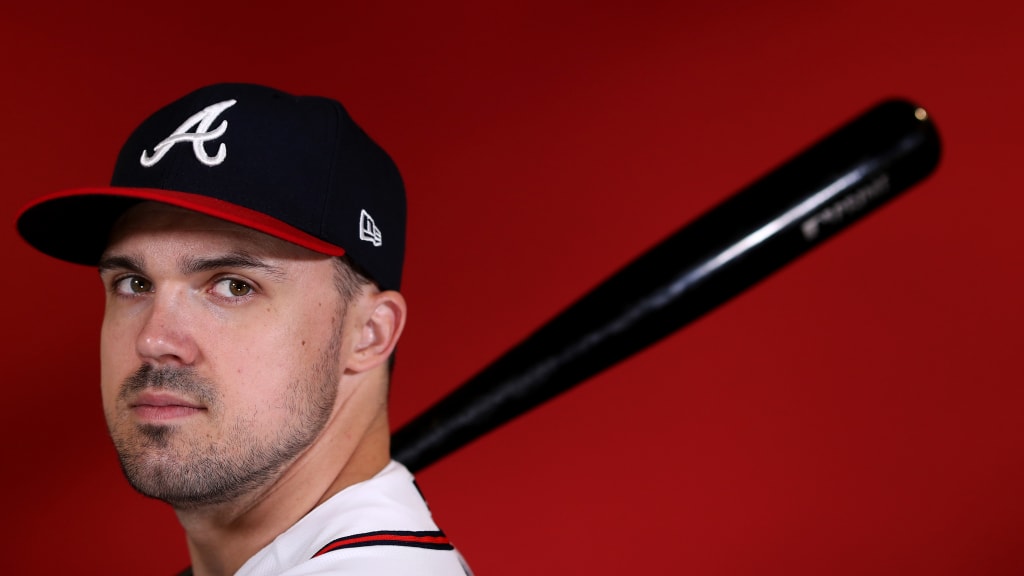
LAKE BUENA VISTA, Fla. -- Placing him in the lineup for three of their first four Grapefruit League season games, the Braves are trying to give Adam Duvall every opportunity to position himself for a rebound season.
But because there is an option to prevent the club from being responsible for all of the veteran outfielder's salary, it's also in the team's interest to maximize the chance to project whether he's capable of doing what he couldn't last year: adapt to life as a backup.
"I just didn't adjust to the role like I wanted to," said Duvall, 30. "It was something I really hadn't done in my career. It's a lot different when you are in that role."
Duvall's 2018 struggles have been well-documented. He recorded a second consecutive 30-plus homer season in '17 with the Reds, then started to slide last season. He hit rock bottom after a July 30 trade to the Braves, who saw him hit .132 with a .344 OPS while totaling just 57 plate appearances.
Facing a lack of Major League-ready outfield depth, the Braves tendered Duvall a contract and agreed to a $2.875 million salary. If Duvall were to be released before the 16th day of Spring Training, the Braves would have to pay just 30 days' worth of this salary -- approximately $490,000. If he were to be released after the 16th day and before Opening Day, the cost would be approximately $735,000.
Although this is an option that would be influenced by how comfortable the Braves are with Johan Camargo as an outfielder, it would help Atlanta to see Duvall prove he can be a valuable asset capable of providing power off the bench and value with his glove at the three outfield positions.
The early results have not been promising for Duvall, who struck out and popped out during his only two plate appearances of Tuesday's 4-3 win over the Mets. He's 0-for-5 with a walk through four games. But Braves hitting coach Kevin Seitzer has been pleased with what he's seen.
"Last year he had a lot going on with his hands when he was getting ready to fire and he was inconsistent with his timing," Seitzer said. "His bat head was moving all over the place too. He worked really hard to smooth everything out. I really like where he's at right now. It's just about getting his timing. He's in a really good place mentally right now. We'll see what happens."
When producing a .782 OPS for the Reds in 2017, Duvall hit .278 with a .531 slugging percentage against fastballs and .194 with .374 slugging against breaking balls, per Statcast data. As he constructed a .639 OPS last year, he hit .213 with .412 slugging against fastballs and hit .180 with .320 slugging against breaking balls.
"If you're late on the fastball and you're speeding everything up, then you're susceptible to the offspeed stuff," Duvall said. "So it's not necessarily that I didn't hit the fastball like I should have. But if you have to cheat because you're swing is a little long, then you're going to be susceptible to the offspeed stuff. The biggest thing you want to do is tighten everything up and be quick to the baseball. That way you can cover the fastball and offspeed."
Motivated by last year's disappointment and the fact he was not included on Atlanta's postseason roster, Duvall spent the past few months fixing his swing. The therapeutic effect of being away from the game might have been equally beneficial.
"I'm happy with where he's at with his swing," Seitzer said. "Now it's just getting back mentally and being an offensive threat instead of being in defensive mode, trying to be so perfect."
